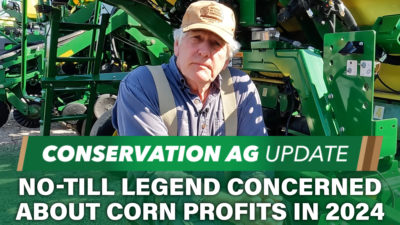When Monsanto announced in late May that it was acquiring Precision Planting, an Illinois-based developer and marketer of seed meters, monitoring and precision farming technology, the news created a ripple effect in the farm world.
Because of this acquisition and many new developments by numerous ag suppliers, there appears to be a growing nervousness among growers about sharing yield and other electronic crop data with any chemical, equipment or seed company.
As Dave Kanicki, the editor of Farm Equipment (a publication in our company that circulates to farm machinery dealers) wrote in a recent column, this growing concern is due to the fact that many growers consider Monsanto to be the 800-pound gorilla in the ag field.
The company has indicated the purchase of this equipment firm would be an important step in growing its IFS — Integrated Farming System — platform, thanks to tools that can monitor the critical aspects of planter performance and crop data analysis.
Monsanto says the IFS group “will utilize advanced agronomic practices, seed genetics and innovative onfarm technology to deliver optimal yield to farmers while using fewer resources.”
Their goal is to have Precision Planting continue to develop new software, hardware and production equipment for what Monsanto refers to as a “rich pipeline that includes a system designed to help simplify variable-rate planting and increase farmers’ yields through more accurate planting.”
Monsanto officials believe they can increase corn yields by 5 to 10 bushels simply by improving your agronomic practices. The company also says it can do a better job than independent crop consultants because they understand genetics better than anyone else.
Why No-Tillers Are Concerned
To gauge the concerns about confidential crop data, we recently e-mailed a survey to No-Till Farmer readers.
When asked if they worry about the electronic crop data collected from their fields remaining confidential, 60% were concerned, 30% say it’s not a significant problem and 10% were not sure. Some 54% are nervous about sharing detailed data with all suppliers.
One survey question dealt directly with Monsanto’s recent acquisition: “With the recent acquisition by Monsanto of Precision Planting, are you concerned that the electronic data gathered with these products could be shared without your permission with Monsanto?”
Some 65% of the respondents indicated a concern, 22% weren’t worried and 13% aren’t sure.
Confidential Data Fears
Alan Guebert, whose column, The Farm and Food File, appears in 70 North American newspapers, voices a serous fear about the acquisition.
“This means that at any point in the growing and harvest seasons, Monsanto likely will know the dates, times, acreages, soil types, weather, seeding rates, yield, moisture content and just about every hard number connected to any field that uses its Precision Planting technology,” he writes.
“That information won’t be limited to fields planted only to Monsanto-branded seed; it will be for any field planted with any seed that uses the Precision Planting technology.”
He wonders how this confidential information might be combined with U.S. Department of Agriculture data to give suppliers an overwhelming edge in dealing with crop forecasts.
“Imagine some math wizard somewhere creating an algorithm that taps this trove of information to extrapolate planted acreages before, say, the big USDA acreage report each June, or to get an angle on crop production before the big crop report each August,” Guebert says. “What would that insight be worth to Archer Daniels Midland or Cargill?”
If the price Monsanto paid for Precision Planting — $200 million, plus an additional $40 million performance-based payment incentive — is correct, Guebert is convinced that “Monsanto acquired a golden goose for chicken feed.”
The Precision Planting acquisition may turn out to be an excellent move in helping you push up yields and profits. But Monsanto and other ag suppliers need to overcome the current concerns growers have in protecting their confidential crop data.







Post a comment
Report Abusive Comment